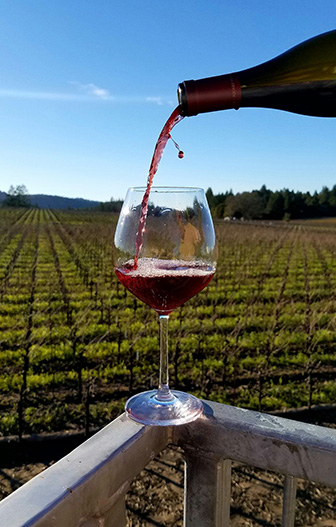Dry Farming
Dry farming sets us apart from our neighbors; the only water our vines receive is the rainwater that percolates into and is stored by the soil. We firmly believe that dry farming produces grapes (and ultimately wine) with better balance and more concentrated, unique flavors.


Soil composition plays a large part in the practice of dry farming, and the abundance of Gold Ridge soil at the Estate ensures the vines stay healthy and productive without the need for irrigation. Gold Ridge soil contains a top layer of sandy loam, which provides excellent drainage for rainfall. Beneath this lies a layer of mineral rich clay, which serves to retain moisture during the summer months, as well as provide nutrients for the vines. A hallmark of dry farmed vines are their root systems, which seek water to depths of up to 30 feet. As a result, our Estate wines have a depth of flavor which truly reflects the terroir.
Dry farming is great for the environment as well. By not irrigating our vines, we’ll save millions of gallons of water over the life of the vineyard. Each vine is also maintained by hand throughout the year without machine assistance, with each plant receiving care based on its individual needs. While dry farming grapevines requires quite a bit of additional labor to manage each vine’s unique canopy, the results are more than worth the effort.